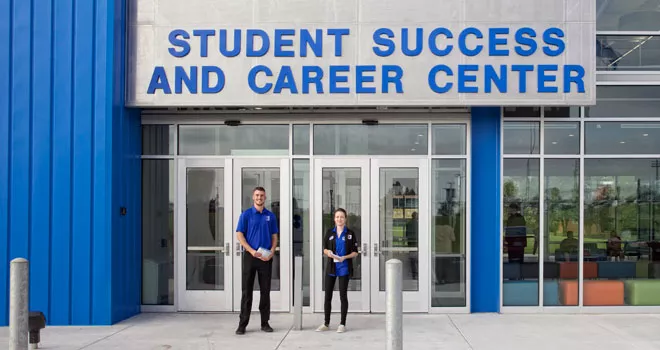Fire & Emergency Medical Services Technology, A.A.S.
Unlock your firefighting future with our Fire & EMS A.A.S. program. Learn, certify, and serve with confidence.
About the Fire & Emergency Medical Services Technology Degree
With a career in Fire & Emergency Medical Services, you have a chance to make a difference in people’s lives on what is often the worst day of their life. If you’re calm under pressure, driven to help others, and ready to take on fast-paced challenges, TCC's Fire & Emergency Medical Services Program could be the right path for you.
Professionals in this field are often the first on the scene in emergencies. Whether it's putting out fires, providing medical care, or keeping communities safe, they're trained to respond quickly, think clearly, and act with compassion.
Some of the skills you’ll learn include:
- Thinking critically and solving problems in high-stress situations
- Assessing patients and delivering life-saving care
- Working effectively as part of a team during an emergency response
- Using a defibrillator, oxygen tank, and other emergency medical equipment in simulated and real settings
This career offers strong benefits:
- Meaningful Work: Help people during some of the most difficult moments of their lives
- Community Impact: Protect lives and property while serving the public
- Career Growth: Many paths for advancement in fire, EMS, and related public safety fields
- Job Stability: Always in demand, these roles offer long-term security and purpose
Fire & Emergency Medical Services Technology Degree Details
TCC’s program is recognized by the National Fire Academy for Fire and Emergency Services Higher Education. Completing specific FEMS courses will also earn you valuable National Fire Academy Certificates.
TCC's program combines classroom learning with real-world training. Our instructors bring years of industry experience and will help you prepare for success in the field.
With affordable tuition and transfer options to four-year colleges, you can continue your education or start your career without taking on excessive debt.
If you’re ready to serve your community and thrive in a fast-paced, hands-on career, we’re here to help you get started.
You will need to possess certain qualities to succeed as an Emergency Medical Technician. Here are some of those that will help you be successful in the profession:
- Compassion: EMTs and paramedics must provide emotional support to patients in an emergency, especially patients who are in life-threatening situations or in extreme mental distress.
- Interpersonal skills: EMTs almost always work on teams and must be able to coordinate their activities closely with others in stressful situations.
- Listening skills: EMTs need to listen to patients to determine the extent of their injuries or illnesses.
- Physical strength: EMTs need to be physically fit. Their job requires a lot of bending, lifting, and kneeling.
- Problem-solving skills: EMTs need strong problem-solving skills. They must evaluate patients' symptoms and administer the appropriate treatments.
- Communication skills: EMTs need to be able to comfort and explain procedures to the patient, give orders, and relay information to others.
After successfully completing this program, you will have the ability to:
- Communicate within the National Incident Management System.
- Integrate fire service laws, rules, and regulations.
- Sustain professional development with relevant resources.
- Work collaboratively and respectfully within the community.
- Analyze technical information.
- Apply technical information.
View the Degree Requirements to find out which courses and credits you'll need to earn your degree.
Explore the Program Map to see how you can complete your degree.
- Complete all TCC application and entry requirements.
- Students with prior learning through academia or life learning may demonstrate that they have met the requirements of the Certificate through transcript review or Prior Learning Assessment.
- Students must complete a reading and writing placement test to enroll in general education classes.
- Students must make a minimum grade of “C” on all general education requirements for the degree, and all FEMS and EMSP courses.
Program Contact
Program Coordinator
Donnell Campbell
918-595-8408
donnell.campbell@tulsacc.edu
School of Health Sciences
TCC Northeast Campus
3727 East Apache Street
Tulsa, OK 74115
918-595-7002
healthsciences@tulsacc.edu

Careers in Fire & Emergency Medical Services Technology
Don't miss out on the opportunity to connect with our Career Services professionals. Schedule a session now to explore the comprehensive range of complimentary resources available for career planning and job preparation.
